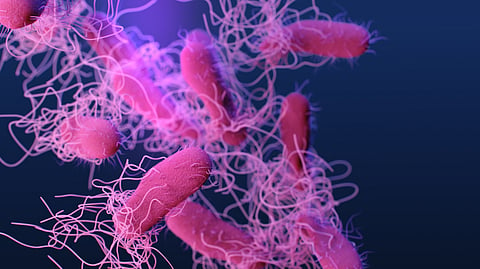A carbohydrate commonly found attached to plant proteins is a food source for the bacteria in our gut, new research suggests.
A paper published in the Proceedings of the National Academy of Sciences describes how species of gut microbes use plant N-glycans, a type of complex carbohydrate, as nutrients. The research was led by researchers from the University of Birmingham and Newcastle University, who used genomic data to identify specific enzymes produced by gut bacteria to break down the complex carbohydrate structures.
Information about enzymes that are produced by the gut microbiome will enable researchers to better understand how to manage good gut health. These enzymes also have biotechnological applications, such as reducing allergenic responses to food and some medicines. As the plant sugars that the gut microbes feed on are associated with some allergies from pollen and plant-based foods, the authors suggest that the enzymes could be harnessed to make some foods and medicines less likely to have allergic reactions.


